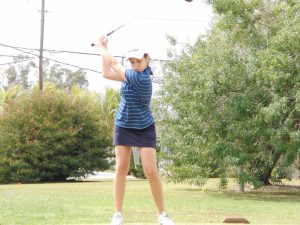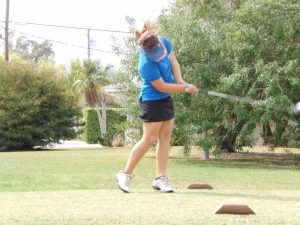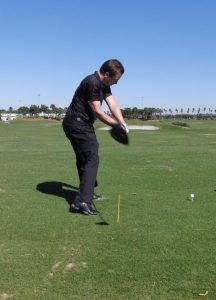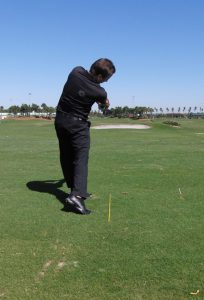Is Your Swing Sick with Word Viruses?

By Dr. T. J. Tomasi, Keiser University College of Golf Senior Faculty and Director of Research
Sticks and stones can break your bones, but words can really hurt you – if you use the wrong ones to describe your golf swing. Golf is riddled with word viruses. That is swing errors that are caused by using the wrong language and meanings.
Here are three examples of word viruses you should stay clear of.
Shoulder Turn: The shoulders do not turn around the spine, yet most amateurs and many teachers of golf who should know better have the word virus implanted in their concept of the coil. ‘Turn your lead shoulder under your chin’ is often the advice, ignoring the fact that since the shoulder is a flexible ball and socket joint, you may do two movements you don’t want or need: 1) curl your front shoulder downward under the chin without coiling and 2) shrug the back shoulder upward instead of coiling it around the spine. The problem is you’re not coiling, you’re shrugging, and there is no coil in a shrug.
Because of the way your body works, you produce coil during the golf swing by rotating your spine, and since your shoulders are fixed to your spine, they rotate with it. Basically, you coil with your spine, not your shoulders, and the coiling action fostered by the correct language (rotate your spine) produces a much different swing motion than the word virus ‘turn your shoulders.’

There is a front shoulder movement, but it’s not correct – note how the left shoulder lags behind the spine creating a coil compromise that wastes power. Absent the power of spine coil, this young player must throw her hands/arms in a weak swipe at the ball – see below. But there is hope here, and I’d like to be there the first time she does it right and watch the smile of success cross her face.

Her teaching pro must fix this awful swing, but it’s not this position per se that needs attention. It’s the spine coil – fix that, and this horrible segment of her swing may well fix itself.
Swing Plane: You have no doubt heard the advice ‘stay on the plane,’ as if there were only one plane for the club during the swing. Trying to keep your club on a single plane as it elevates to the top of your swing is, of course, impossible, given that as your club moves upward, backward, and downward, it transcribes a series of new planes.
Picture a swing looking down the target line at the address – you have a straight line from the ball through your club, but that changes as soon as you start your swing. What you should do is stay on the same swing plane angle, not the same swing plane.
Please remember that a plane is a straight line, and the golf swing is an arc, so the correct concept is staying on the arc angle, not the plane. The best language is “There are many swing planes but only one swing plane angle.”
Hip Clear: one of the worst word viruses has to do with the hips. You shouldn’t think of your lead hip as rotating out of the way or clearing to allow room for the club at impact. These word viruses lead to many mistakes, one of which is a huge power leak.
Forget about the leisurely clearing idea and concentrate on firing your pelvis toward the target. Your pelvis is a fusion of several large bones, and its center (think belt buckle) increases its angle (pelvic cocking) during the squat portion of the downswing, then explodes in the direction of the target through impact as the squat suddenly straightens out. (Think of a swimmer diving into a pool as the gun signals to GO.)

Squat– pelvis cocked

Pelvis has been fired – belt buckle points slightly right off the target.
Learn more!
Want more tips? If you want to take your game to the next level, contact our team at Keiser University’s College of Golf & Sport Management today. With our dedication and experience, together, we can elevate your game to new heights. Give us a call today at 888-355-4465.












